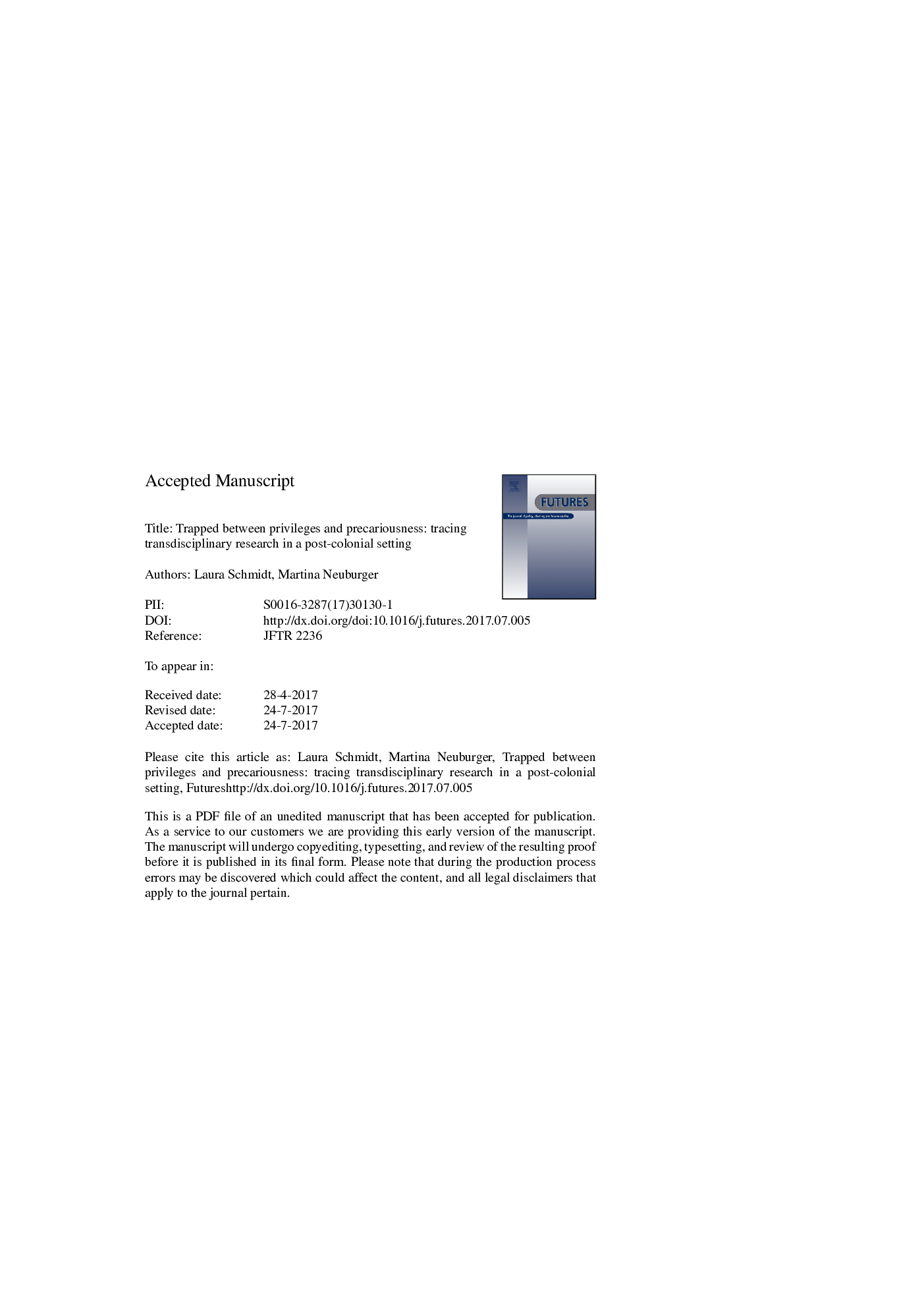| Article ID | Journal | Published Year | Pages | File Type |
|---|---|---|---|---|
| 5109056 | Futures | 2017 | 34 Pages |
Abstract
In its conception, transdisciplinarity turns its back on traditional academic knowledge production valuing different bodies of knowledge to be of relevance for the issue at hand regardless of their discipline or academic education. The question of how transdisciplinary practise can manage to break with existing structures to realize its envisaged co-production is hardly addressed, however, crucial acknowledging inherent power dynamics. Using a transdisciplinary project as a case study, we picture the structures that position those involved regarding their influence on and benefit of (a) the research setup, (b) resource allocations, (c) project discourses, (d) project output and (e) decision-making and steering. By combining quantitative with qualitative data, we reveal the herein materialised power imbalances between social and natural sciences, academic degrees, science and society and, in our specific setup, between the Global North and South. Our results indicate a pervasive reproduction of hierarchical, academic, postcolonial knowledge orders that make doing transdisciplinarity a privilege for some, although not without risk. In conclusion, we emphasise the high need for, first, serious attempts of self-critical processes of reflexivity in transdisciplinary practise and, second, a fundamental reorientation in the academic and funding system in order to challenge existing knowledge hegemonies.
Keywords
Related Topics
Social Sciences and Humanities
Business, Management and Accounting
Business and International Management
Authors
Laura Schmidt, Martina Neuburger,
